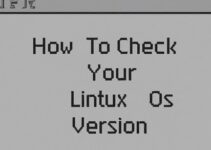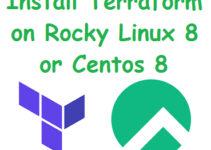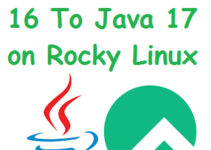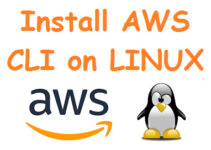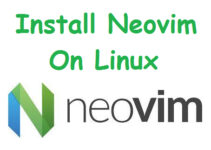CentOS is a popular Linux distribution that has been widely used in server environments due to its stability, reliability, and long-term support. However, with the recent announcement by Red Hat that they will be shifting their focus to CentOS Stream, which will have a shorter support life cycle, many users are now looking for CentOS alternatives that offer similar features and benefits. In this article, we will explore some of the best CentOS alternatives in detail and help you make an informed decision.
Best CentOS Alternatives
Debian
Debian is one of the oldest and most popular Linux distributions, known for its stability, security, and ease of use. It is an ideal choice for server environments due to its long-term support and wide range of software packages. Debian uses the APT package management system, which makes it easy to install, update and remove packages. It also has a large and active community of developers and users who provide support and documentation.
One of the advantages of Debian is its security features, including a built-in firewall, security updates, and SELinux. Debian also has a reputation for being a stable and reliable operating system, with a long-term support cycle that can last up to 5 years.
Ubuntu
Ubuntu is another popular Linux distribution that is based on Debian. It is known for its ease of use, user-friendly interface, and large community of users and developers. Ubuntu has become increasingly popular for both desktop and server environments due to its regular release cycle and wide range of software packages.
One of the advantages of Ubuntu is its user-friendly interface, which makes it easy for users to get started with Linux. It also has a large community of users and developers who provide support and documentation, making it easy to find solutions to common problems. Ubuntu has a regular release cycle of every 6 months and a long-term support (LTS) cycle of 5 years, which is ideal for server environments.
Fedora
Fedora is a community-driven Linux distribution that is sponsored by Red Hat. It is known for its cutting-edge features, rapid release cycle, and wide range of software packages. Fedora uses the DNF package management system, which is based on the popular YUM package management system.
One of the advantages of Fedora is its rapid release cycle, with new versions being released every 6 months. This makes it ideal for users who want to use the latest features and software packages. Fedora also has a large and active community of developers and users who provide support and documentation.
Rocky Linux
Rocky Linux is a community-driven Linux distribution that was created as a response to the announcement by Red Hat that they would be shifting their focus to CentOS Stream. Rocky Linux is designed to be a drop-in replacement for CentOS and is built on the same code base. It is known for its stability, reliability, and long-term support, with a support cycle that can last up to 10 years.
One of the advantages of Rocky Linux is that it is built on the same code base as CentOS, which means that it is familiar to users who are already using CentOS. Rocky Linux also has a large and active community of developers and users who provide support and documentation.
AlmaLinux
AlmaLinux is another community-driven Linux distribution that was created as a response to the announcement by Red Hat that they would be shifting their focus to CentOS Stream. AlmaLinux is designed to be a drop-in replacement for CentOS and is built on the same code base. It is known for its stability, reliability, and long-term support, with a support cycle that can last up to 10 years.
One of the advantages of AlmaLinux is that it is built on the same code base as CentOS, which means that it is familiar to users who are already using CentOS. AlmaLinux also has a large and active community of developers and users who provide support and documentation. Additionally, AlmaLinux is backed by CloudLinux Inc., a company that specializes in providing enterprise-grade Linux solutions, which adds an extra layer of credibility and support.
OpenSUSE
OpenSUSE is a community-driven Linux distribution that is known for its stability, security, and ease of use. It uses the Zypper package management system, which makes it easy to install, update and remove packages. OpenSUSE is also known for its powerful YaST configuration tool, which allows users to easily manage system settings.
One of the advantages of OpenSUSE is its stability and security features, including built-in firewall, security updates, and SELinux. It also has a wide range of software packages available in its repositories and a large and active community of developers and users who provide support and documentation.
CentOS Stream
Although CentOS Stream is not a traditional alternative to CentOS, it is worth mentioning as it is the direction that Red Hat is taking with CentOS. CentOS Stream is a rolling-release Linux distribution that is designed to provide a stable and reliable platform for development and testing. It is based on the same code base as Red Hat Enterprise Linux (RHEL), which means that it is compatible with RHEL and provides a similar experience.
One of the advantages of CentOS Stream is that it provides a continuous stream of updates and features, which makes it ideal for developers and users who want to use the latest features and software packages. It also has a large and active community of developers and users who provide support and documentation.
The official websites of the CentOS alternatives that we discussed in the article
Debian: https://www.debian.org/
Ubuntu: https://ubuntu.com/
Fedora: https://getfedora.org/
Rocky Linux: https://rockylinux.org/
AlmaLinux: https://almalinux.org/
OpenSUSE: https://www.opensuse.org/
CentOS Stream: https://www.centos.org/centos-stream/
Please note that before downloading and installing any operating system, it is important to ensure that your hardware meets the system requirements and to follow the installation instructions carefully to avoid any issues.
Some frequently asked questions about CentOS:
What is CentOS?
CentOS is a free and open-source operating system based on the Red Hat Enterprise Linux (RHEL) source code. It is designed to provide a stable and reliable platform for servers and workstations.
Is CentOS still available?
No, CentOS is no longer available in its traditional form. CentOS has shifted its focus to CentOS Stream, which is a rolling-release distribution that provides a continuous stream of updates and features.
What is the difference between CentOS and CentOS Stream?
CentOS Stream is a rolling-release distribution that is based on the same code base as Red Hat Enterprise Linux (RHEL). It is designed to provide a continuous stream of updates and features for developers and users who want to use the latest software packages. In contrast, CentOS provided a stable and reliable platform for servers and workstations.
What are the alternatives to CentOS?
There are several alternatives to CentOS, including Debian, Ubuntu, Fedora, Rocky Linux, AlmaLinux, OpenSUSE, and CentOS Stream.
Is CentOS Stream suitable for production environments?
CentOS Stream is primarily designed for developers and users who want to use the latest software packages and features. It is not recommended for production environments that require stability and long-term support.
How can I migrate from CentOS to an alternative distribution?
The migration process will depend on the specific distribution that you want to switch to. Generally, you can backup your data, install the new distribution, and restore your data. It is important to carefully follow the migration instructions to avoid any issues.
What is the lifespan of CentOS Stream?
CentOS Stream is a rolling-release distribution, which means that it does not have a specific lifespan. However, it is recommended to update to the latest version regularly to ensure that you have access to the latest features and security updates.
Can I still use CentOS 7 or 8?
Yes, CentOS 7 and 8 are still available and can be used. However, they will no longer receive updates and support from CentOS. You may consider switching to an alternative distribution that provides long-term support and updates.
Can I still use CentOS for personal use?
Yes, you can still use CentOS for personal use. CentOS 7 and 8 will continue to be available and can be used as a free and open-source operating system. However, they will no longer receive updates and support from CentOS.
What is the future of CentOS?
the future of CentOS has shifted towards CentOS Stream, which is a rolling-release distribution that provides a continuous stream of updates and features. CentOS Stream will be the upstream for RHEL, which means that it will receive the latest updates and features before they are included in RHEL. The decision to shift the focus to CentOS Stream was made by Red Hat, the company that owns the RHEL source code, and has caused some controversy in the CentOS community. However, CentOS Stream provides an opportunity for developers and users to test and use the latest software packages and features, and it may be suitable for certain use cases.
Is it possible to contribute to CentOS development?
Yes, it is possible to contribute to CentOS development by participating in the CentOS community, reporting bugs, submitting patches, and contributing to documentation. The CentOS Project is a community-driven project that relies on volunteers to develop and maintain the distribution. You can find more information about how to contribute on the CentOS website.
Conclusion
In conclusion, there are several CentOS alternatives that offer similar features and benefits. Debian, Ubuntu, Fedora, Rocky Linux, AlmaLinux, OpenSUSE, and CentOS Stream are all viable options for server environments. It is important to consider factors such as stability, reliability, long-term support, software packages, and community support when choosing a Linux distribution. By weighing these factors, you can make an informed decision about which CentOS alternative is best for your needs.

